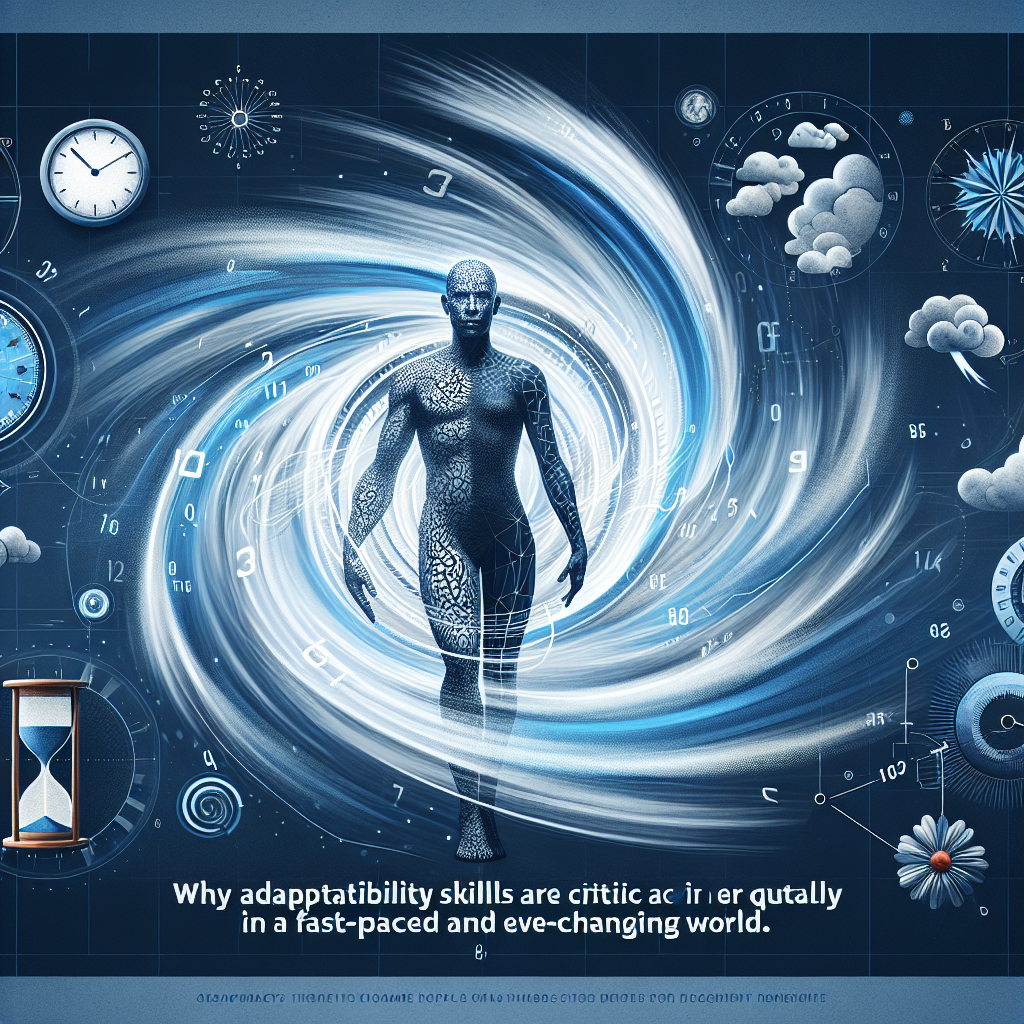In today’s fast-paced and ever-changing world, adaptability skills have become more important than ever. With rapidly evolving technologies, shifting market trends, and unpredictable global events, the ability to quickly adjust and thrive in new circumstances is a highly sought-after skill in the workforce. Whether you are a young professional looking to advance your career or a seasoned employee aiming to stay relevant in an ever-changing landscape, adaptability skills are critical for success.
Adaptability skills refer to the ability to adjust to new situations, learn new skills, and effectively navigate changes in the workplace. Those who possess adaptability skills are able to embrace change, think creatively, and problem-solve in dynamic environments. They are resilient in the face of adversity, open to new ideas, and willing to take on new challenges. These skills are not only valuable in the workplace but also in everyday life, as they empower individuals to navigate the uncertainties of the modern world with confidence and ease.
Why are adaptability skills so critical in a fast-paced and ever-changing world? Here are a few key reasons:
1. Rapid Technological Advancements: In today’s digital age, technology is constantly evolving at a rapid pace. New software, tools, and platforms are being introduced regularly, transforming the way we work and communicate. Employees who are able to adapt to these technological advancements and quickly learn new skills will be better equipped to thrive in a technology-driven workplace.
2. Shifting Market Trends: The business landscape is constantly changing, with market trends shifting in response to consumer behavior, economic conditions, and industry disruptions. Companies that are able to adapt to these changes quickly and effectively will be more competitive and successful in the long run. Employees with strong adaptability skills can help their organizations stay ahead of the curve and respond to market shifts with agility and innovation.
3. Global Events and Crises: The world is facing a multitude of global challenges, from pandemics to natural disasters to political upheaval. Individuals and organizations must be prepared to respond to these crises with resilience and flexibility. Those who can adapt to changing circumstances, pivot their strategies, and find creative solutions will be better positioned to weather the storm and emerge stronger on the other side.
4. Career Growth and Development: In a rapidly changing job market, adaptability skills are essential for career growth and development. Employers are increasingly looking for candidates who can demonstrate a willingness to learn, grow, and adapt to new challenges. By honing your adaptability skills, you can position yourself as a valuable asset to your organization and open up new opportunities for advancement and career fulfillment.
So, how can you develop and strengthen your adaptability skills in a fast-paced and ever-changing world? Here are a few tips to help you thrive in dynamic environments:
– Stay Curious and Open-Minded: Cultivate a curiosity for learning and a willingness to explore new ideas and ways of thinking. Stay open-minded and embrace new opportunities for growth and development.
– Embrace Change: Instead of resisting change, see it as an opportunity for growth and innovation. Be proactive in seeking out new challenges and experiences that will help you expand your skills and knowledge.
– Build Resilience: Develop resilience by learning to bounce back from setbacks and failures. See challenges as opportunities for growth and use them as learning experiences to build your strength and perseverance.
– Cultivate Emotional Intelligence: Develop your emotional intelligence by learning to manage your emotions, empathize with others, and communicate effectively in stressful situations. Emotional intelligence will help you navigate change and uncertainty with grace and composure.
– Seek Feedback and Guidance: Be open to feedback from others and seek guidance from mentors, colleagues, and experts in your field. Use their insights to help you improve your skills, expand your knowledge, and adapt to new challenges.
In conclusion, adaptability skills are critical in a fast-paced and ever-changing world. By developing your ability to adapt to new situations, learn new skills, and navigate changes with resilience and creativity, you can position yourself for success in the modern workplace and beyond. Embrace change, stay curious, build resilience, cultivate emotional intelligence, and seek feedback and guidance to thrive in dynamic environments and achieve your goals.
FAQs:
Q: How can I demonstrate adaptability skills in a job interview?
A: You can demonstrate adaptability skills in a job interview by sharing examples of how you have successfully navigated change, learned new skills, and overcome challenges in previous roles. Highlight your ability to stay calm under pressure, problem-solve creatively, and adapt quickly to new situations.
Q: How can I develop my adaptability skills in the workplace?
A: To develop your adaptability skills in the workplace, seek out new challenges and opportunities for growth, be open to feedback and guidance from others, and actively seek out ways to learn new skills and expand your knowledge. Embrace change, stay flexible, and be willing to step out of your comfort zone to grow and adapt in dynamic environments.
Q: Is adaptability a natural trait or a learned skill?
A: Adaptability is a combination of both natural traits and learned skills. While some individuals may naturally possess a higher level of adaptability, anyone can develop and strengthen their adaptability skills through practice, self-awareness, and continuous learning. By cultivating a growth mindset and a willingness to embrace change, you can enhance your adaptability and thrive in a fast-paced and ever-changing world.





Leave A Comment